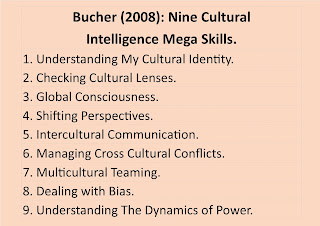THE BROADER PROFESSIONAL CONTEXT.
On reading Trends Shaping Education (2016), Family Matters was the trend that caught my attention and is most relevant to my practice. I could instantly see direct connections between the key topics discussed in this chapter and the positions of the families in our school community now and where that might lead to in the future. The fact that these trends are so closely interrelated, being a 'now' and a 'future 'issue was also an attracting feature.
The most relevant issue that applies to our immediate school community and the wider community of Aotearoa, New Zealand within Family Matters, chapter (4) of Trends Shaping Education (2016), is that of Diverse Families.
The institution of marriage is changing. Marriage rates are declining and same-sex marriages are now legal in almost half of the OECD countries. Our school community is following these trends with more children coming from a non-traditional family structure, when measured against many dynamics. Our school community is also following the NZ trend of a growth in Asian, Māori and Pacifika populations. Data from Statistics NZ (2004) suggests that by 2021 there will be 600,000 Asian families (up 120%), 750,000 Maori families (up 28%) and the number of our Pacifika families would have increased by 58%. Interestingly, the number of European families is slowly decreasing and by 2021 will only be 1% greater than in 2001, at about 3.1 million.
The ethnic mosaic of our school community and that of New Zealand, is changing. As educators, are we prepared for the huge influence this will have on our education system?
We know that good teaching and learning opportunities are built on solid and respectful relationships. We need to be more aware than ever of family, ethnic, cultural and social dynamics and positively help to shape attitudes and interactions.
I propose the ultimate question being; what we can do, as educators, to support our families on this multifaceted journey taking place in a fundamentally altering global landscape?
Our education system needs to address the promotion of acceptance and respect whilst providing teachers with the tools to teach what will become very diverse classrooms. Trends Shaping Education (2016), suggests we need to teach tolerance, critical thinking and prevention of radicalisation. Promoting trust between parents, teachers and administrators was also a key suggestion.
Where to begin?
Cultural diversity is identified one of eight principles in The New Zealand Curriculum. This indicates that we are aware that we will soon be living in a country with a much wider ethic and cultural mix. This section of our curriculum draws together research, digital resources, and tools to support schools as they make this journey forward.
The New Zealand Curriculum values can be used by schools and communities to deepen understandings. The change in our community and cultural make up is a trend that will hugely influence our education system. We have the support to make this challenging trend positive for all involved.
REFERENCES
OECD. (2016) Trends Shaping Education 2016, OECD Publishing, Paris. http://dx.doi.org/10.1787/trends_edu-2016-en
Data about projected ethnic populations retrieved from: http://www.stats.govt.nz/browse_for_stats/population/estimates_and_projections/ethnic-pop-projections-issues-and-trends.aspx
Whakatauki retrieved from; http://slideplayer.com/slide/2423234/
The New Zealand Curriculum-Cultural diversity. Retrieved from; http://nzcurriculum.tki.org.nz/Principles/Cultural-diversity
The New Zealand Curriculum-Values. Retrieved from; http://nzcurriculum.tki.org.nz/Reviewing-your-curriculum/Possible-pathways/Values




This comment has been removed by the author.
ReplyDeleteThe New Zealand Curriculum values are a good guide for schools to set their own core values. At our school we have simplified them to respect / whakaute, integrity/mana, kindness / aroha, responsibility / kawenga. Adhering to these will hopefully establish the culture of acceptance, tolerance and respect that you mention. Kindness and empathy to me are so important. These are not only values for a school community but being part of wider communities, including global.
ReplyDelete